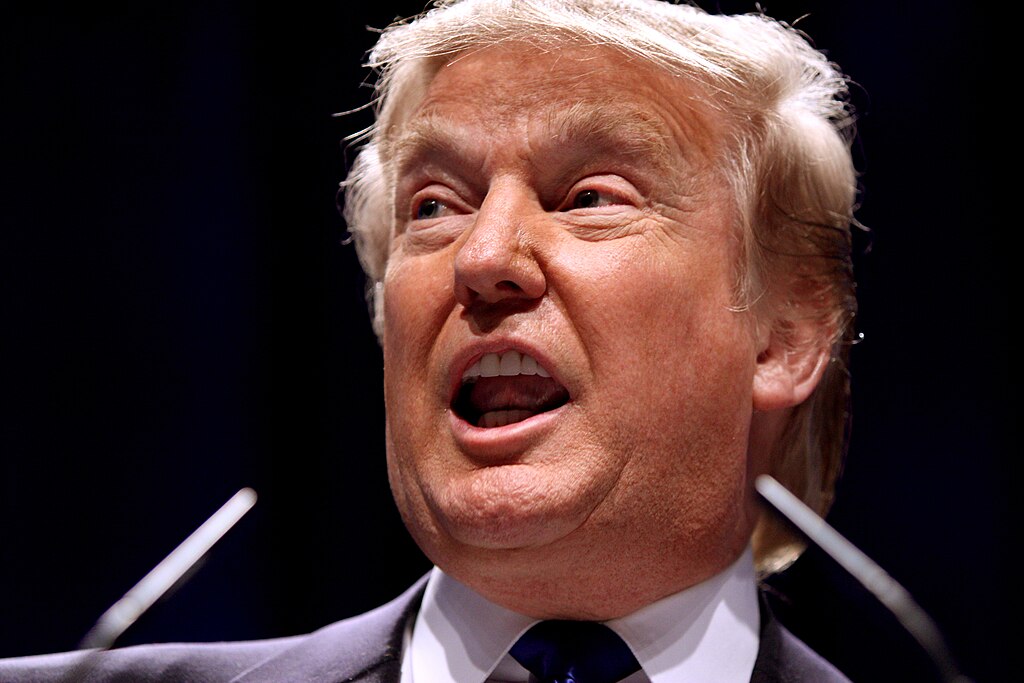Donald Trump has made his position on renewable energy clear for 2025, advocating for a “balanced” approach that prioritizes traditional energy sources while cautiously investing in renewables. The announcement has ignited controversy, with critics accusing him of sidelining sustainability goals in favor of bolstering fossil fuel industries. Trump’s stance has drawn praise from energy executives and backlash from climate advocates, setting the stage for a heated national conversation.
Limited Renewable Investments Amid Fossil Fuel Push
Trump’s energy policy for his presidency emphasizes a measured expansion of renewable energy. While his administration plans to allocate funding for wind, solar, and hydroelectric projects, the focus remains on ensuring these investments do not undermine the dominance of coal, oil, and natural gas. Federal grants for renewable projects will target regions with existing infrastructure to minimize costs, according to administration insiders.
“We are not abandoning renewables, but we must ensure they complement, not replace, our energy backbone,” Trump said during a recent press conference. Critics argue this approach slows the transition to cleaner energy and perpetuates reliance on fossil fuels, undermining global efforts to combat climate change.
The administration has also hinted at slashing subsidies for large-scale renewable projects, citing inefficiency and taxpayer burdens. Industry experts warn this move could deter investment in solar and wind, both of which have seen exponential growth in recent years.
Net-Zero Skepticism and Focus on Energy Independence
Trump has repeatedly expressed skepticism about achieving net-zero emissions by 2050, calling the target “unrealistic.” Instead, his administration aims to reduce emissions incrementally without compromising energy independence. Plans include advancing carbon capture technologies for coal plants and promoting nuclear energy as a cleaner alternative to fossil fuels.
While this pragmatic approach has resonated with some, environmental advocates contend that Trump’s policies prioritize short-term gains over long-term sustainability. “Carbon capture is a band-aid, not a solution,” said Maria Gutierrez, a leading climate policy expert. “The world needs bold action, not half-measures.”
Netizens React to Trump’s Renewable Energy Stance
Trump’s mixed signals on renewable energy have sparked a flurry of reactions online. User @EnergyRealist tweeted, “Trump is right—renewables can’t stand alone yet. Balancing energy needs is the only logical path forward.” Conversely, @GoGreenNow fired back, “We don’t have time for a ‘balanced approach.’ Climate change demands immediate and bold action.”
The debate also highlighted concerns over cutting subsidies. “Killing renewable subsidies is short-sighted and dangerous,” posted @SolarForTomorrow. Meanwhile, @FossilFuelFuture countered, “It’s about time renewables competed on a level playing field. No more handouts!”
Some users pointed to the nuclear energy focus as a compromise. “Nuclear is clean, reliable, and overdue for investment. Trump’s support here makes sense,” wrote @NukeEnergyAdvocate. However, @EcoWatchdog cautioned, “Nuclear waste and risks aren’t worth it. Renewables are the safer, smarter bet.”
The Road Ahead for Renewable Energy
Trump’s energy strategy faces significant challenges, including resistance from renewable energy advocates and potential legal battles over subsidy cuts. As the nation grapples with its role in combating climate change, the administration’s policies will likely influence the direction of global energy markets.



 UK Accepts U.S. Request to Use British Bases for Defensive Strikes on Iranian Missiles
UK Accepts U.S. Request to Use British Bases for Defensive Strikes on Iranian Missiles  Iran Detains U.S. Citizens Amid Escalating Conflict With the United States and Israel
Iran Detains U.S. Citizens Amid Escalating Conflict With the United States and Israel  Pentagon Downplays ‘Endless War’ Fears After U.S. Strikes on Iran Escalate Conflict
Pentagon Downplays ‘Endless War’ Fears After U.S. Strikes on Iran Escalate Conflict  Trump Launches Operation Epic Fury: U.S. Strikes on Iran Mark High-Risk Shift in Middle East
Trump Launches Operation Epic Fury: U.S. Strikes on Iran Mark High-Risk Shift in Middle East  Trump’s Iran Strikes Spark War Powers Clash in Congress
Trump’s Iran Strikes Spark War Powers Clash in Congress  U.S.-Israel War on Iran Escalates as Gulf Conflict Disrupts Oil, Air Travel and Regional Security
U.S.-Israel War on Iran Escalates as Gulf Conflict Disrupts Oil, Air Travel and Regional Security  U.S. Lawmakers Question Trump’s Iran Strategy After Joint U.S.-Israeli Strikes
U.S. Lawmakers Question Trump’s Iran Strategy After Joint U.S.-Israeli Strikes  Trump Says U.S. Attacks on Iran Will Continue, Warns of More American Casualties
Trump Says U.S. Attacks on Iran Will Continue, Warns of More American Casualties  Why did Iran bomb Dubai? A Middle East expert explains the regional alliances at play
Why did Iran bomb Dubai? A Middle East expert explains the regional alliances at play  Rubio Says U.S. Would Not Target School After Deadly Iran Strike Reports
Rubio Says U.S. Would Not Target School After Deadly Iran Strike Reports  Zelenskiy Urges Change in Iran After U.S. and Israeli Strikes, Cites Drone Support for Russia
Zelenskiy Urges Change in Iran After U.S. and Israeli Strikes, Cites Drone Support for Russia  Argentina Tax Reform 2026: President Javier Milei Pushes Lower Taxes and Structural Changes
Argentina Tax Reform 2026: President Javier Milei Pushes Lower Taxes and Structural Changes  Trump to Attend White House Correspondents’ Dinner 2026, Ending Long Boycott
Trump to Attend White House Correspondents’ Dinner 2026, Ending Long Boycott  Does international law still matter? The strike on the girls’ school in Iran shows why we need it
Does international law still matter? The strike on the girls’ school in Iran shows why we need it  Trump Announces U.S. Strikes on Iran Navy as Conflict Escalates
Trump Announces U.S. Strikes on Iran Navy as Conflict Escalates  Trump Warns Iran as Gulf Conflict Disrupts Oil Markets and Global Trade
Trump Warns Iran as Gulf Conflict Disrupts Oil Markets and Global Trade 



























